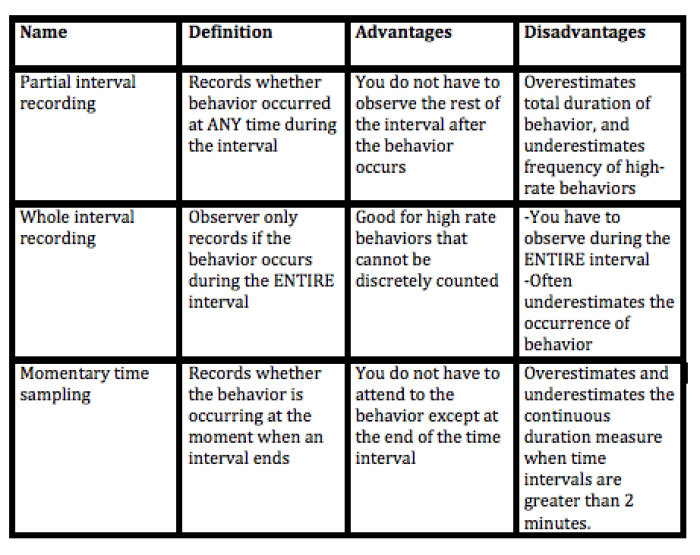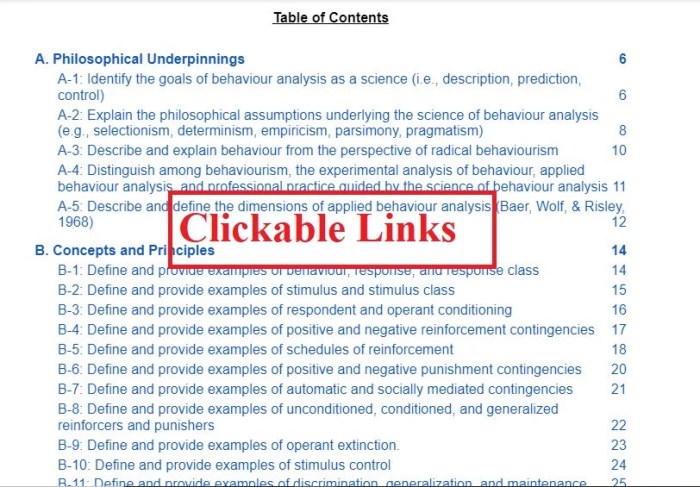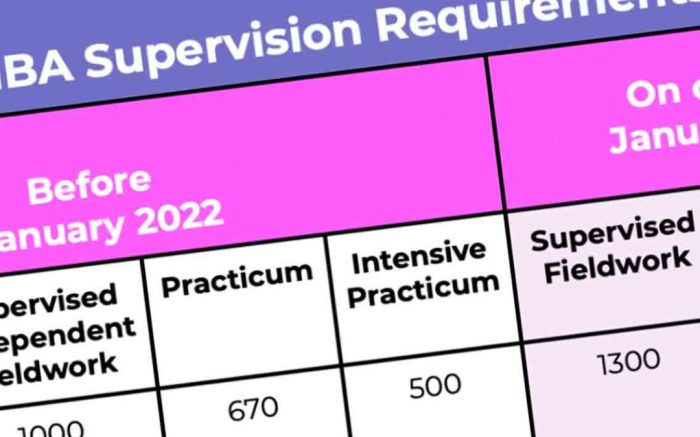The BACB 5th Edition Task List is a comprehensive resource for behavior analysts, providing a structured approach to task analysis, skill development, and intervention implementation. This updated edition reflects the latest advancements in behavior analysis and offers valuable guidance for professionals working with individuals with disabilities.
In this guide, we will delve into the purpose, structure, and key changes of the BACB 5th Edition Task List. We will explore its role in task analysis and skill development, ethical considerations, applications in various settings, data collection and analysis, collaboration and communication, and professional development opportunities.
By understanding and utilizing this essential tool, behavior analysts can enhance their practice and improve outcomes for individuals they serve.
BACB 5th Edition Task List Overview
The Behavior Analyst Certification Board (BACB) has released the 5th Edition of its Task List, which serves as a comprehensive guide for behavior analysts working in various settings. This updated version reflects the latest advancements in the field and provides a standardized framework for assessing the competence of behavior analysts.
Structure and Organization
The Task List is organized into five domains, each representing a core area of practice for behavior analysts:
- Professional and Ethical Compliance
- Assessment
- Intervention
- Data Management
- Supervision
Within each domain, tasks are further categorized into subdomains, representing specific areas of expertise. This structure allows for a systematic and thorough evaluation of a behavior analyst’s skills and knowledge.
Key Changes from Previous Editions
The 5th Edition Task List introduces several significant changes from previous editions:
- Expanded Scope of Practice:The Task List now includes tasks related to working with diverse populations, including individuals with developmental disabilities, autism spectrum disorder, and other conditions.
- Increased Emphasis on Ethics:The Professional and Ethical Compliance domain has been expanded to reflect the importance of ethical decision-making in behavior analysis.
- Integration of Technology:The Task List recognizes the increasing role of technology in behavior analysis, with tasks related to data collection, analysis, and intervention.
- Alignment with Current Research:The Task List has been updated to reflect the latest research and best practices in the field of behavior analysis.
These changes ensure that the Task List remains a valuable resource for behavior analysts seeking certification and continuing education.
Task Analysis and Skill Development

Task analysis is a critical component of behavior analysis, providing a systematic approach to understanding the steps involved in a specific task and identifying any potential barriers to its successful completion. This process helps practitioners develop tailored behavior intervention plans that target specific skill deficits and promote independence.
Conducting a task analysis involves observing and breaking down the task into its component steps, identifying the cues and responses associated with each step, and assessing the individual’s current skill level. This information can then be used to create a task analysis chart, which serves as a roadmap for developing and implementing behavior intervention plans.
Using the Task List to Develop and Implement Behavior Intervention Plans
The Task List provides a comprehensive framework for task analysis and skill development, offering a standardized set of tasks organized by skill areas and developmental levels. By referencing the Task List, practitioners can:
- Identify specific skill deficits and target areas for intervention.
- Develop individualized behavior intervention plans that address the unique needs of each client.
li>Monitor progress and make adjustments to the intervention plan as needed.
By incorporating task analysis and the Task List into their practice, behavior analysts can enhance the effectiveness of their interventions and promote the development of essential skills in individuals with developmental disabilities.
Ethical Considerations in Task List Implementation: Bacb 5th Edition Task List

The BACB 5th Edition Task List is a valuable tool for behavior analysts, but its ethical use is paramount. Understanding and adhering to ethical guidelines ensures the well-being of individuals receiving services and maintains the integrity of the profession.
Obtaining Informed Consent
Before implementing any intervention based on the Task List, informed consent must be obtained from the individual or their legal guardian. This involves providing clear and concise information about the nature of the intervention, its potential benefits and risks, and the individual’s rights and responsibilities.
Role of Supervision
Supervision is crucial for ethical Task List implementation. Supervisors provide guidance, support, and accountability to ensure that interventions are conducted ethically and effectively. They help practitioners navigate ethical dilemmas, monitor progress, and ensure adherence to best practices.
Task List Applications in Different Settings

The BACB Task List provides a comprehensive framework for assessing and developing skills in individuals with disabilities. It can be applied in various settings to improve outcomes, enhance communication, and foster independence.
In schools, the Task List helps educators identify specific skills that students need to develop. By breaking down complex tasks into smaller steps, teachers can create individualized lesson plans that target each student’s unique needs. This structured approach promotes progress monitoring and ensures that students are making meaningful gains.
Clinics, Bacb 5th edition task list
In clinics, the Task List serves as a valuable tool for clinicians to assess and track client progress. By identifying areas of strength and weakness, therapists can develop targeted interventions that address specific skill deficits. The Task List also provides a standardized measure of progress, allowing clinicians to monitor client outcomes and make data-driven decisions.
Homes
In homes, the Task List empowers families to actively participate in their loved one’s skill development. By providing a clear understanding of the skills that need to be addressed, families can collaborate with professionals to create home-based programs that support progress.
To effectively complete tasks outlined in the BACB 5th Edition Task List, it’s essential to understand the components of a diagram of a fire hydrant . By analyzing the structure and function of each element, practitioners can gain insights into how to intervene effectively during emergencies.
This knowledge can then be applied to the BACB 5th Edition Task List, ensuring that practitioners have a comprehensive understanding of the skills and strategies required for successful intervention.
The Task List also facilitates communication between families and professionals, ensuring that everyone is working towards the same goals.
Data Collection and Analysis

Evaluating the effectiveness of task list interventions is crucial for ongoing improvement. Data collection provides valuable insights into progress and areas for refinement.
Methods for Data Collection
- Direct Observation:Observe the individual’s task performance in real-time.
- Self-Monitoring:Have the individual track their own task completion and accuracy.
- Interviews:Gather qualitative data through interviews with the individual, caregivers, or teachers.
- Task Analysis:Break down tasks into smaller steps and track performance at each step.
Data Analysis
Data analysis helps identify patterns, measure progress, and make informed decisions. Consider the following:
- Baseline Data:Collect data before implementing the task list to establish a starting point.
- Progress Monitoring:Regularly track performance to identify areas of improvement and adjust interventions accordingly.
- Trend Analysis:Examine data over time to identify patterns and make data-based predictions.
- Outcome Evaluation:Assess the overall effectiveness of the task list intervention based on pre-determined goals.
Collaboration and Communication
Collaboration between behavior analysts and other professionals is crucial for the effective implementation of the Task List. Behavior analysts should work closely with educators, therapists, medical professionals, and caregivers to ensure a comprehensive and cohesive approach to intervention.
Communicating with Parents, Caregivers, and Other Stakeholders
Effective communication is essential for engaging parents, caregivers, and other stakeholders in the Task List process. Behavior analysts should use clear and concise language, avoid jargon, and tailor their explanations to the audience’s understanding. They should also provide regular updates on progress and be open to feedback and suggestions.
Building Strong Relationships
Building strong relationships with parents, caregivers, and other stakeholders is essential for fostering a collaborative approach. Behavior analysts should demonstrate empathy, respect, and a willingness to listen to concerns. They should also be responsive to inquiries and provide support when needed.
Fostering a Collaborative Approach
To foster a collaborative approach, behavior analysts should involve stakeholders in the development and implementation of the Task List. They should encourage feedback and input from all parties and work together to develop a plan that meets the needs of the individual.
Professional Development and Training

Enhancing knowledge and skills in using the Task List is crucial for behavior analysts to provide effective services. Ongoing professional development and training opportunities enable analysts to stay abreast of the latest advancements and best practices.
Importance of Ongoing Training and Supervision
Continuous training and supervision are essential to ensure competence in Task List implementation. This helps analysts refine their skills, address emerging challenges, and maintain ethical standards. Regular supervision provides guidance, feedback, and support, fostering ongoing professional growth.
Professional Development Opportunities
Behavior analysts have access to various professional development opportunities to enhance their Task List expertise:
- Workshops and Conferences:Industry-specific events offer hands-on training, networking opportunities, and updates on the latest research and developments.
- Online Courses:Universities and professional organizations provide online courses covering the Task List and its applications.
- Mentoring Programs:Pairing with experienced behavior analysts provides personalized guidance and support in implementing the Task List effectively.
- Research and Publications:Engaging in research and publishing articles contributes to the knowledge base and advances the field.
Resources for Continuing Education and Professional Development
- Behavior Analyst Certification Board (BACB):Offers continuing education requirements and resources for certification maintenance.
- Association for Behavior Analysis International (ABAI):Provides access to conferences, workshops, and online learning opportunities.
- National Autism Center:Delivers training programs and resources specifically tailored to autism spectrum disorder.
Future Directions and Emerging Trends
The BACB Task List is a dynamic document that is constantly evolving to meet the changing needs of the field of behavior analysis. As the field continues to grow and develop, so too will the Task List.One potential future direction for the Task List is the development of more specific and targeted tasks.
This could include tasks that are tailored to specific populations, such as children with autism spectrum disorder or adults with intellectual disabilities. Additionally, the Task List could be expanded to include tasks that are relevant to new and emerging areas of behavior analysis, such as positive behavior support and Acceptance and Commitment Therapy (ACT).Another
emerging trend in behavior analysis is the use of technology. This is likely to have a significant impact on the Task List, as it could be used to deliver tasks, collect data, and provide feedback. For example, a therapist could use a mobile app to deliver a task to a client and then collect data on the client’s performance.
The app could then provide feedback to the therapist and the client.The Task List is a valuable tool for behavior analysts, and it is likely to continue to evolve and grow in the years to come. By staying abreast of the latest trends in behavior analysis, behavior analysts can ensure that they are using the most up-to-date and effective tools available.
Clarifying Questions
What is the purpose of the BACB 5th Edition Task List?
The BACB 5th Edition Task List provides a standardized framework for conducting task analyses, developing behavior intervention plans, and evaluating progress.
How has the Task List changed from previous editions?
The 5th Edition includes updated task categories, revised definitions, and a greater emphasis on ethical considerations and collaboration.
What are the ethical guidelines for using the Task List?
Behavior analysts must obtain informed consent, maintain confidentiality, and ensure that interventions are based on scientific principles and respect the rights of individuals.